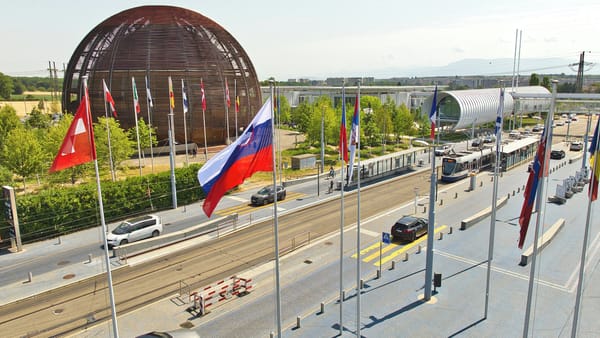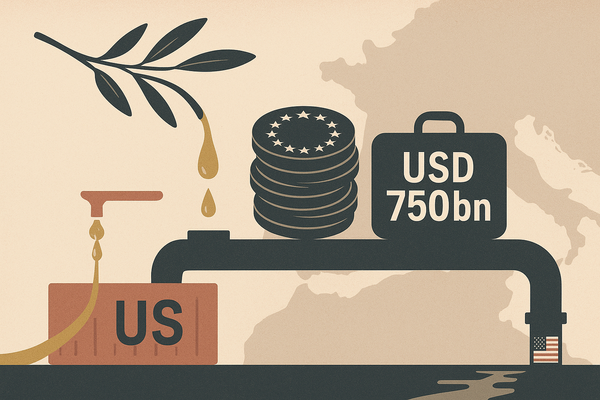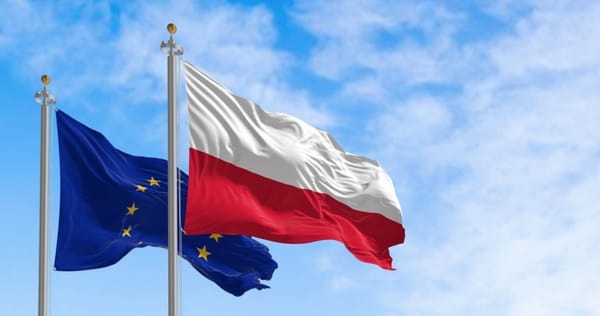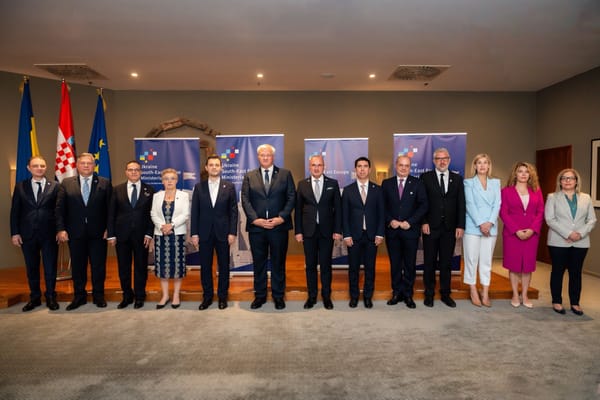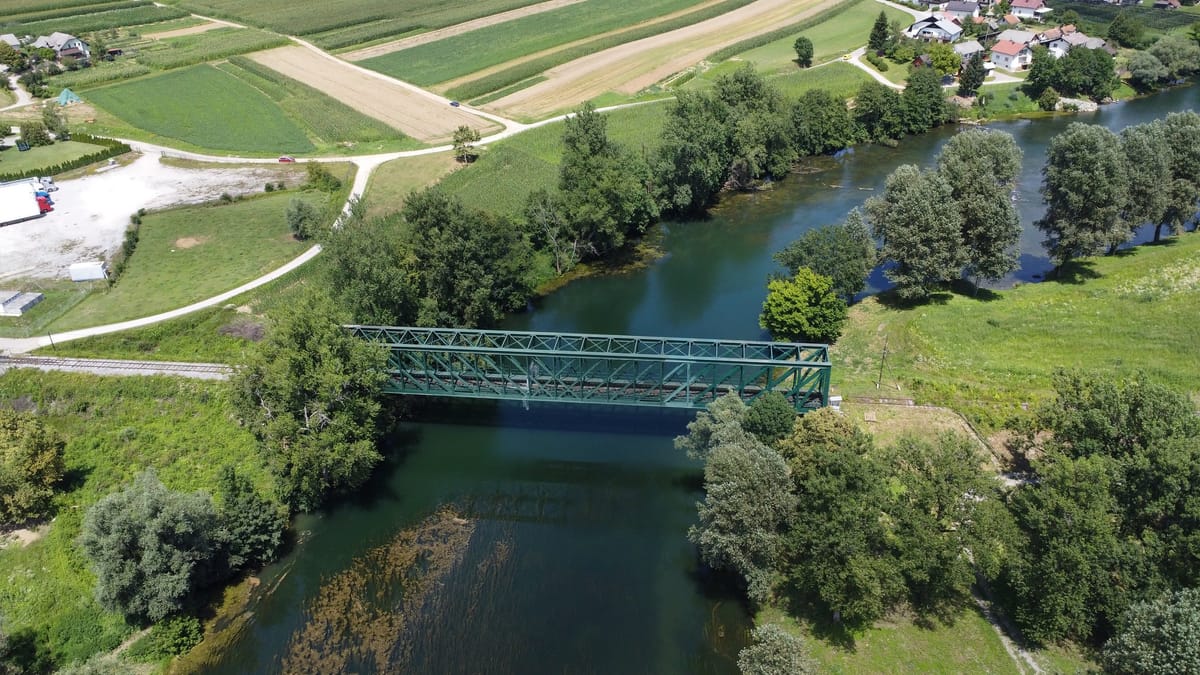
Slovenia tightens border as EU pledges migration revamp
Slovenia has announced an increase in border controls with Croatia and Hungary, citing national security and escalating concerns over irregular migration, particularly linked to developments in Syria, where the al-Assad regime was recently toppled after over 50 years of repressive rule.
The new measures were put into place after discussions with neighbouring countries, including Italy and Croatia, and set against the backdrop of heightened migration flows.
While the Schengen Area continues to embody the EU’s ideal of open borders, concerns about terrorism and illegal migration are provoking questions about the future of the free-travel zone and whether such measures will become more widespread amid growing security concerns.
Slovenia’s decision to bolster its border security comes at a time of heightened instability that has directly influenced European migration policies and moves made by Belgium, Germany, and France, which have already suspended asylum claims for Syrian nationals. Slovenia’s stance illustrates how geopolitical events outside the EU are affecting policy in third countries in Central and Eastern Europe (CEE).
Kallas to reset EU’s foreign policy approach
The incoming High Representative of the European Union for Foreign Affairs and Security Policy Kaja Kallas, the EU’s top diplomat, is planning to introduce new proposals aimed at revitalising foreign policy discussions within the bloc. According to Euractiv, EU member states have long felt frustration at foreign ministers’ meetings, where, according to Brussels insiders, long statements often overshadow substantive debates.
Kallas intends to make these sessions more dynamic, focused, and action-oriented, with an emphasis on practical decision-making. As one EU diplomat speaking on condition of anonymity said: “It has become too much of a talk shop, and often, after a session, we end up without getting to the real substance that needs to be discussed.” Kallas’s goal is to replace the current format with one that fosters genuine debate on key issues and leads to decisions rather than prolonged exchanges of formal statements.
For her part, Kallas wants to take a more active role in leading discussions while encouraging brief, concise ministerial interventions to keep debates focused and allow time for targeted discussions on pressing topics. In addition to limiting the length of ministers’ contributions, Kallas proposes holding ministers-only sessions, where ambassadors, advisers, and other aides would be excluded.
While these reforms are aimed at creating a more dynamic environment for foreign policy discussions, they also carry the potential for increased dissent within the group. Past discussions, particularly over contentious issues such as Hungary vetoing Ukraine aid, have already led to heated exchanges among member states. Kallas’ changes could bring more visible disagreements to the forefront, making the decision-making process more challenging.
Media underlines Kallas’s credentials, integrity
Kallas is no stranger to confrontational discussions, Brussels-based media recalled, having had direct confrontations with EU leaders such as Hungarian Prime Minister Viktor Orban and former German Chancellor Angela Merkel.
The new head of EU foreign policy also plans to incorporate security briefings into foreign policy discussions and request briefings from the EU’s Single Intelligence Analysis Capacity, which would provide ministers with real-time intelligence on security issues. This will enable more informed decision-making on foreign policy, particularly in light of the ongoing war in Ukraine and increasing global security threats and mark a shift toward a more holistic approach to diplomacy within the EU.
European Council President Antonio Costa has also expressed the need for a shift toward more strategic and less bureaucratic discussions at the leadership level, and both he and Kallas are advocating for a more efficient, coherent foreign policy, responsive to the EU’s current challenges. It also aims to foster greater transparency in the EU’s decision-making, addressing growing concerns about its ability to act decisively in response to international crises.
Whether this shift can be fully achieved without creating new tensions among EU member states remains to be seen. If successful, Kallas’ reforms could fundamentally reshape the EU’s foreign policy process.
This change reflects the increasing importance of security concerns in shaping EU foreign policy and ensuring that decision-making is based on the latest available data. Kallas’ efforts align with broader EU ambitions to reform its decision-making process.
Ongoing dialogue between Slovenia, Croatia
Slovenian Interior Minister Bostjan Poklukar held discussions with Italy and Croatia, two of his country’s key partners regarding security concerns. These talks underscore collaborative efforts within the EU framework, with further meetings scheduled.
Slovenia’s decision to reintroduce temporary border checks is not the first such measure in recent years. Border checks were first reinstated in October 2023, following similar moves by Italy on its Slovenian border.
Slovenia explained its decision to increase border checks but not immediately suspend asylum processing for Syrians, unlike European countries further west, reflects a more cautious stance, balancing security needs with adherence to EU asylum obligations. The temporary border checks also highlight the growing division within the EU on how to handle migration and security.
Slovenia, Hungary and Croatia are pushing border enforcement to curb irregular migration, while other EU nations continue to push for more humanitarian-based approaches, reflecting broader internal security concerns in the EU as it grapples with the ripple effects of Syrian instability.


